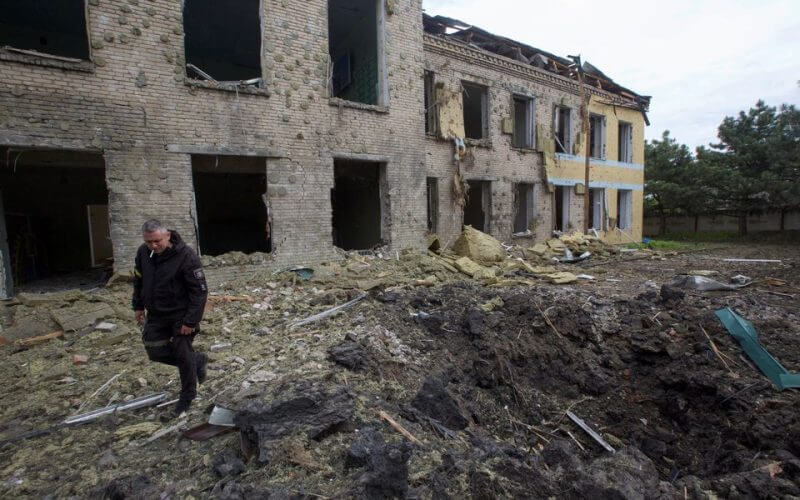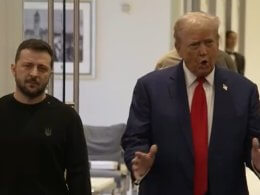The European Union will likely agree an embargo on Russian oil imports "within days", according to its biggest member Germany, as Moscow said it saw its economic ties growing with China after being isolated by the West over its invasion of Ukraine.
Ukrainian President Volodymyr Zelenskiy told global business leaders in Davos on Monday that the world must increase sanctions against Russia to deter other countries from using "brute force" to achieve their aims.
Many of the EU's 27 member states are heavily reliant on Russian energy, prompting criticism from Kyiv that the bloc has not moved quickly enough to halt supplies.
Hungary stuck to its demands for energy investment before it agrees to such an embargo, clashing with EU states pushing for swift approval. The EU has offered up to 2 billion euros ($2.14 billion) to central and eastern nations lacking non-Russian supply.
"We will reach a breakthrough within days," Germany's economy minister, Robert Habeck, told broadcaster ZDF.
The European Commission and United States were working in parallel on a proposal to cap global oil prices, he said.
"It is obviously an unusual measure, but these are unusual times," he said.
Russia's three-month long invasion, the biggest attack on a European state since 1945, has seen over 6.5 million people flee abroad, turned entire cities into rubble, and prompted the unprecedented imposition of Western sanctions on Russia.
In a further symbolic indication of Russia's isolation, U.S. coffee chain Starbucks (SBUX.O) became the latest Western brand to say it was pulling out of the country on Monday.
Foreign Minister Sergei Lavrov said the Kremlin would focus on developing ties with China as economic links with the United States and Europe were cut.
"If they (the West) want to offer something in terms of resuming relations, then we will seriously consider whether we will need it or not," he said in a speech, according to a transcript on the foreign ministry's website.
"Now that the West has taken a 'dictator's position', our economic ties with China will grow even faster."









